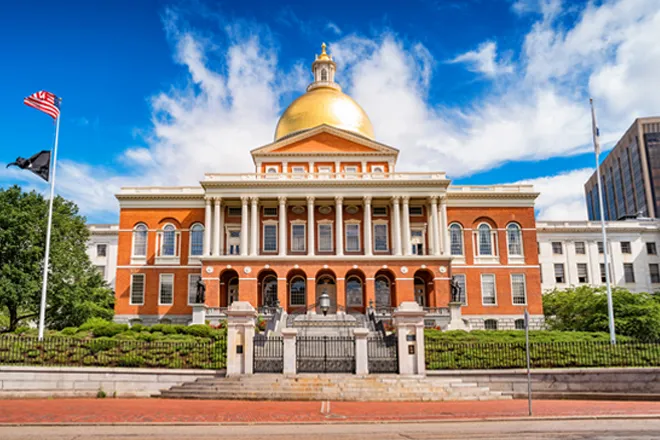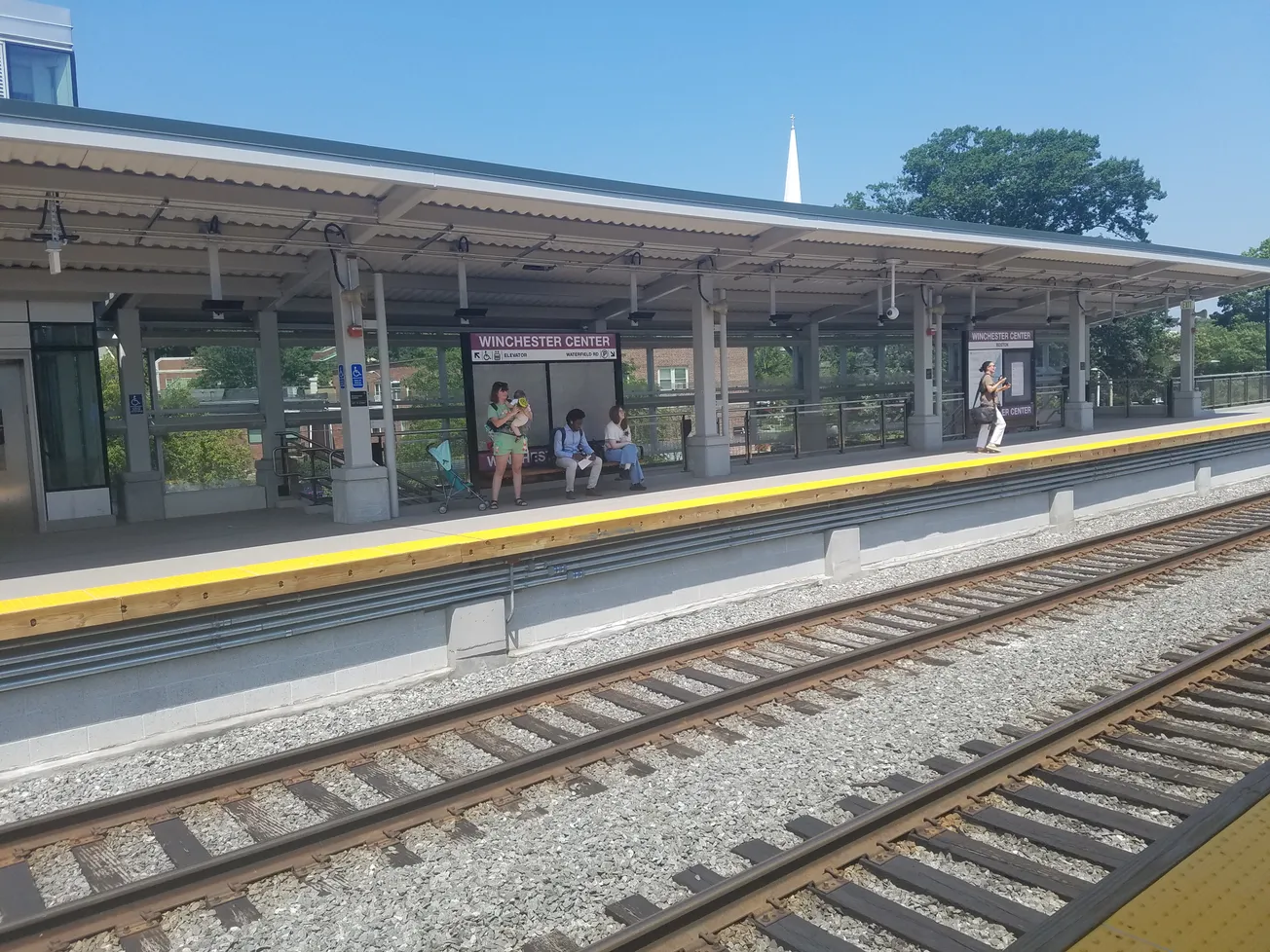Table of Contents
The following was submitted by the office of Rep. Michael Day:
Rep. Michael S. Day worked with his colleagues in the Massachusetts House of Representatives to pass its Fiscal Year 2025 (FY25) budget.
Funded at $58 billion, the House’s FY25 budget responds to the needs of residents, provides strong support for the Commonwealth’s cities and towns makes essential investments, including significant funding for education, transportation, health care, housing and workforce development.
“I was proud of the work we did to create this budget in the House, as it provides significant relief to our residents and proactively invests in our communities to keep our Commonwealth competitive and equitable,” said Day. “I appreciate the support of my colleagues in helping me bring over $12.6 million directly home to Winchester.”
Under the House budget, Winchester would receive $10,729,103 in Chapter 70 education funding, a $451,984 increase from last year; and $1,786,484 in Unrestricted Government Aid which the town may use at its discretion.
As a result of amendments filed by Day, Winchester will also receive $100,000 for infrastructure improvements at its transfer station and $50,000 for the renovation, maintenance and rehabilitation of Winchester parks and recreational facilities.
Day also secured $250,000 for The Nan Project under the House budget which will support and expand mental health and suicide prevention programing in Winchester schools and other schools across the Commonwealth.
Additionally, Day helped the New England Zoological Corporation, known as Zoo New England, secure $6.6 million in funding for increased support for programming, conservation and animal welfare at Stone Zoo and Franklin Park Zoo.
Local aid and education
The FY25 House budget funds Unrestricted General Government Aid (UGGA) at $1.283 billion, and Chapter 70 education funding at $6.863 billion.
With the advocacy of Day and his colleagues, the House increased Gov. Maura Healey’s initial Chapter 70 funding proposal by raising the minimum aid per pupil rate from $74 to $104, resulting in a $309 million increase above the FY24 budget.
The budget also funds the fourth year of a six-year implementation plan for the Student Opportunity Act (SOA), which was enacted in 2019 to ensure that public schools have the necessary resources to provide high-quality education to students, regardless of zip code or income level.
The House budget includes the following additional education funding initiatives: $493 million for the Special Education Circuit Breaker program; $199 million for charter school aid; $99 million for regional school transportation; and $29 million for homeless student transportation.
The House’s FY25 budget also continues to fully fund universal free school meals programming for every public-school student in the Commonwealth, making Massachusetts one of only eight states in the country that does this.
Affordable and accessible housing
The FY25 budget maintains the House’s commitment to protect renters and homeowners across the Commonwealth from eviction and homelessness by investing in the following programs: $325 million for the Emergency Assistance (EA) program, which provides shelter to families with children and pregnant women; $219 million for the Massachusetts Rental Voucher Program (MRVP); $197.4 million for Rental Assistance for Families in Transition (RAFT) program; and $57.3 million for HomeBase.
The House also adopted Day’s legislative proposal to provide access to legal counsel in eviction proceedings and funded the program initially at $2.5 million.
In 2023, only 4% of tenants facing eviction had legal counsel, compared to 90% of landlords in the same time period. According to the Boston Bar Association, providing legal representation to indigent parties in eviction cases will save the Commonwealth $63 million annually.
“I am incredibly pleased that the House included this proposal in the budget and provided funding for it,” said Day. “We know that providing access to counsel to all individuals in these cases, regardless of their income level, increases justice and equal rights before the law. We also know that this will save us money by ensuring that all parties understand and can meaningfully advocate for their rights.”
Early education and care
Continuing its longstanding commitment to improving the early education and care (EEC) workforce, the House budget includes $45 million to sustain FY24 rate increases and provides an additional $20 million in FY25 rate increases for child care providers across the Commonwealth.
Other early education and care investments, some of which are made permanent through this budget, include: $475 million for Commonwealth Cares for Children (C3) grants; $357 million for child care for children involved with the Department of Children & Families and the Department of Transitional Assistance; $417 million for child care for low-income families; $17.5 million for Head Start grants; and $20 million for an EEC educator scholarship and loan forgiveness program.
Higher education
The House budget allocates $784 million for the University of Massachusetts system, $404 million for community colleges, and $395 million for state universities.
Other higher education investments include: $175 million for scholarships; $80 million for a MassGrant Plus expansion; and $24 million for MassReconnect, which provides free community college to students over the age of 25 to complete their education and training.
Public transportation
The House budget includes a record investment of $555 million for the Massachusetts Bay Transportation Authority (MBTA).
“We know the MBTA is in dire need of funding to repair its infrastructure and increase its services to our residents,” continued Day. “This historic investment will help to ensure that the MBTA fulfills its commitment to providing us with safe and reliable mass transit options.”
Workforce development
The House budget funds the Executive Office of Labor and Workforce Development at $115 million.
It also invests in the following initiatives: $59.4 million for Adult Basic Education Services; $18.4 million for DTA Employment and Training Services; $16.2 million for Summer Jobs for At Risk Youth; and $10 million for the Targeted Scholarship Program for high-demand industries.
Energy and environmental affairs
The House budget appropriates $579.9 million in Energy and Environmental Affairs programs, including: $159.7 million for the Department of Conservation and Recreation; $86.7 million for the Department of Environmental Protection; $75.4 million for the Department of Agricultural Resources; and $63.4 million for the Clean Water Trust.
The House includes an additional $35 million for an MBTA Resilient Rides program, a $30 million transfer to the Massachusetts Clean Energy Center and $10 million in continued support for Green SchoolWorks program to decarbonize and increase efficiency in our schools through green energy projects.
Public health and mental health
The House budget funds the Department of Public Health at $1 billion and the Department of Mental Health at $1.18 billion for FY25.
Investments include: $193.5 million for the Bureau of Substance Abuse Services (BSAS); $14.2 million for statewide and community-based suicide prevention, including funding for The Nan Project as mentioned above; $1.25 million for prostate cancer awareness, education, and research; $622.3 million for adult support services; and $130.5 million for child and adolescent services.
The budget passed the House of Representatives 153-4 on Friday, April 26 after consideration and debate of more than 1,400 suggested amendments and now goes to the Senate for consideration.







